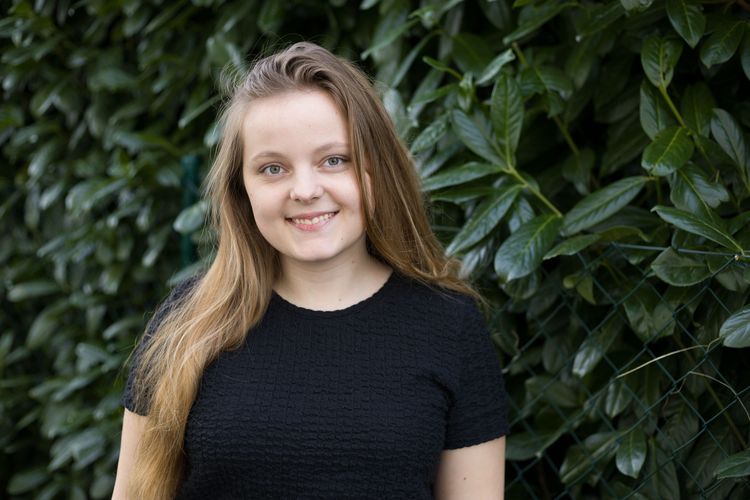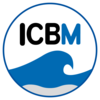
External PhD Student
Contact
E-Mail: Katharina.runzheimer@dlr.de
Room: German Aerospace Center, Institute of Aerospace Medicine
Tel.: +49 2203 601 1267
Katharina Runzheimer
Project Outline
Cultivation of previously uncultivated microorganisms from aquatic habitats with regard to biotechnological application potentials
The objective of my project is the selective enrichment and cultivation of extremophiles from hostile aquatic environments. This project is a sub-project of the interdisciplinary BMBF project Multikulti, which aims to cultivate previously uncultured microorganisms from diverse aquatic environments using novel techniques and a newly designed bioreactor.
Extremophilic organisms often possess resistance genes, such as those responsible for pigmentation, which provide protection against radiation, cold, or other stress factors. Microbial pigments, therefore, hold great potential for biotechnological applications, including radiation protection for space missions, food additives, and medical products (e.g., vitamin precursors).
The aim of this doctoral thesis is to isolate previously uncultivated, biotechnologically relevant microorganisms from aquatic extreme environments, with a particular focus on saline ecosystems. Various cultivation approaches will be employed to obtain pure cultures.
Link to project:
Academic vita
| Since 2021 | PhD candidate within the Multikulti project (ICBM, Oldenburg, DLR, Cologne) |
Thesis: „Cultivation of previously uncultivated microorganisms from aquatic habitats with regard to biotechnological application potentials”
| |
| 2018-2021 | Rheinische Friedrich-Wilhelms-Universität Bonn with degree: M.Sc. Microbiology |
Thesis: „Intercomparison study of different biological indicators and their pigmentation to a selection of decontamination methods” (German Aerospace Center (DLR), Cologne)
| |
| 2015-2018 | Rheinische Friedrich-Wilhelms-University of Bonn with degree: B.Sc. Food and Nutrition Sciences |
| Thesis: „Quantität und Qualität der Carotinoidproduktion von Mikroorganismen aus Rohmilchkäse bei unterschiedlichen Temperaturen” |
Publications
Runzheimer K, Lozano C, Boy D, Boy J, Godoy R, Matus FJ, Engel D, Pavletic B, Leuko S, Armengaud J, Moeller R. Exploring Andean High-Altitude Lake Extremophiles through Advanced Proteotyping. J Proteome Res. 2024 Mar 1;23(3):891-904. doi: 10.1021/acs.jproteome.3c00538. Epub 2024 Feb 20. PMID: 38377575; PMCID: PMC10913102.
Siems K, Runzheimer K, Rebrosova K, Etzbach L, Auerhammer A, Rehm A, Schwengers O, Šiler M, Samek O, Růžička F, Moeller R. Identification of staphyloxanthin and derivates in yellow-pigmented Staphylococcus capitis subsp. capitis. Front Microbiol. 2023 Sep 29;14:1272734. doi: 10.3389/fmicb.2023.1272734. PMID: 37840735; PMCID: PMC10570620.
Koch SM, Freidank-Pohl C, Siontas O, Cortesao M, Mota A, Runzheimer K, Jung S, Rebrosova K, Siler M, Moeller R, Meyer V. Aspergillus niger as a cell factory for the production of pyomelanin, a molecule with UV-C radiation shielding activity. Front Microbiol. 2023 Jul 20;14:1233740. doi: 10.3389/fmicb.2023.1233740. PMID: 37547691; PMCID: PMC10399693.
Siems K, Runzheimer K, Rehm A, Schwengers O, Heidler von Heilborn D, Kaser L, Arndt F, Neidhöfer C, Mengel JP, Parcina M, Lipski A, Hain T, Moeller R. Phenotypic and genomic assessment of the potential threat of human spaceflight-relevant Staphylococcus capitis isolates under stress conditions. Front Microbiol. 2022 Nov 3;13:1007143. doi: 10.3389/fmicb.2022.1007143. PMID: 36406458; PMCID: PMC9669719.
Pavletić B, Runzheimer K, Siems K, Koch S, Cortesão M, Ramos-Nascimento A, Moeller R. Spaceflight Virology: What Do We Know about Viral Threats in the Spaceflight Environment? Astrobiology. 2022 Feb;22(2):210-224. doi: 10.1089/ast.2021.0009. Epub 2022 Jan 3. PMID: 34981957; PMCID: PMC8861927.
Flegler A, Runzheimer K, Kombeitz V, Mänz AT, Heidler von Heilborn D, Etzbach L, Schieber A, Hölzl G, Hüttel B, Woehle C, Lipski A. Arthrobacter bussei sp. nov., a pink-coloured organism isolated from cheese made of cow's milk. Int J Syst Evol Microbiol. 2020 May;70(5):3027-3036. doi: 10.1099/ijsem.0.004125. PMID: 32223834.

